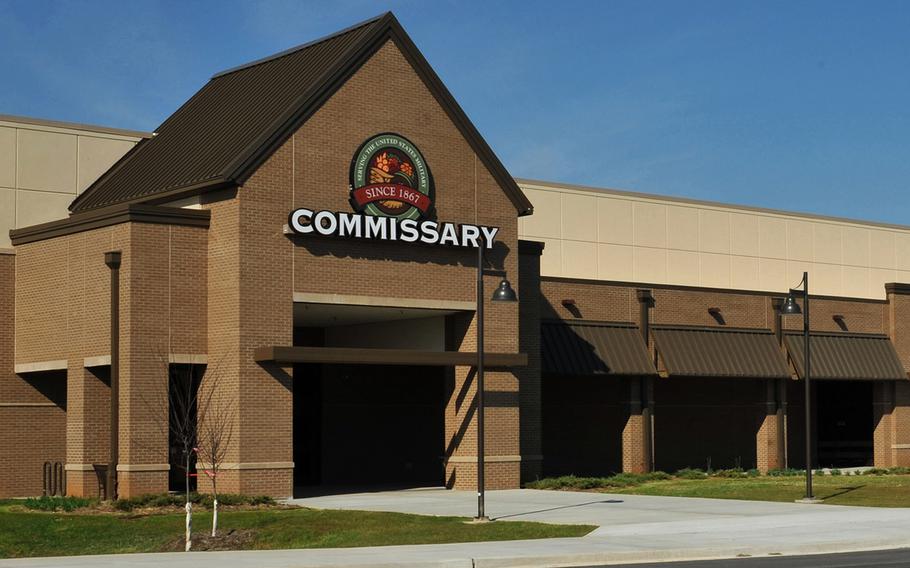
The commissary at Fort Campbell Ky., as seen in 2012 before its grand opening. (DOD)
To save millions of dollars in compensation and ease streamlining of store operations on base, Defense officials are weighing a plan to convert the Defense Commissary Agency (DeCA) to a non-appropriated fund activity, which could reduce wages and benefits for 15,000 commissary workers.
The DeCA workforce would be converted from general schedule (GS) federal employees to lower salaried non-appropriated fund (NAF) employees whose work hours also are more pliable for achieving operational efficiencies.
The move would align pay, benefits and job protection for the DeCA workforce with employees of base exchanges, where profits are key to sustaining operations as opposed to the higher goal of customer savings at taxpayer-subsidized grocery stores on base.
The Military Compensation and Retirement Modernization Commission in January recommended that DeCA merge with the three large military exchanges service into a single defense resale activity. So far both the Congress and Defense officials are rejecting that idea.
Inside the Pentagon, review this commission recommendation fell to Deputy Chief Management Officer, an under secretary of defense-level post established in 2007 to better synchronize department business operations.
The nomination of Peter Levine to be the next DCMO is pending before the Senate. Acting DCMO David Tillotson III is in charge. The DCMO doesn’t support the commission call to consolidate commissaries and exchange services into a new Defense Resale Activity.
Instead it is recommending that the department convert DeCA to an NAF activity and operate its stores with exchange-run processes. There would be savings on personnel but also from standardizing accounting, joint contracts, combined supply operations and other combined resale activities. These moves are difficult to execute if DeCA remains funded by tax dollars while exchanges are self-sustaining, earning profits needed to support on-base morale, welfare and recreational activities.
Turning commissaries into NAF activities almost certainly would raise prices and lower cost savings to its patrons. But also hit hard would be store employees, many of whom are military family members and retirees.
Making commissaries NAF store would save money “but on the backs of workers, particularly military families if you look at who takes these jobs” in base stores, said Candace Archer, labor management relations specialist with the American Federation of Government Employees.
Exchanges and other NAF activities set wages based on local prevailing rates without regard to federal employee pay scales or richer benefit structures for GS employees. A shift could create pay cuts of 30 percent or more at commissaries in some areas of the country, Archer said.
In southern Nevada, for example, entry-level cashiers in commissaries are GS-3 employees who in their first year are paid at least $25,000, Archer said. Moving these employees under the NAF system would mean shifting to minimum wage, which in Nevada is $8.25 an hour or $17,160 a year.
“We see differences between the two pay scales in double digits, as high as 20 to 30 percent for some, less for others,” Archer said.
“I would guess most every person moved from the GS to the NAF system would lose in terms of wages but there could be an exception.”
Commissaries, Archer said, converting to NAF would save “by bringing in low-cost labor just like Wal-Mart. We owe more to our military families.”
NAF employees also are easier to hire as flextime employees or temporary workers, avoiding the need for robust benefit packages.
DMCO is arguing the shift to NAF would allow considerable savings on store operations while preserving current business models for resale activities and service-unique exchange operations.
To comment, write Military Update, P.O. Box 231111, Centreville, VA, 20120 or email milupdate@aol.com or twitter: @Military_Update